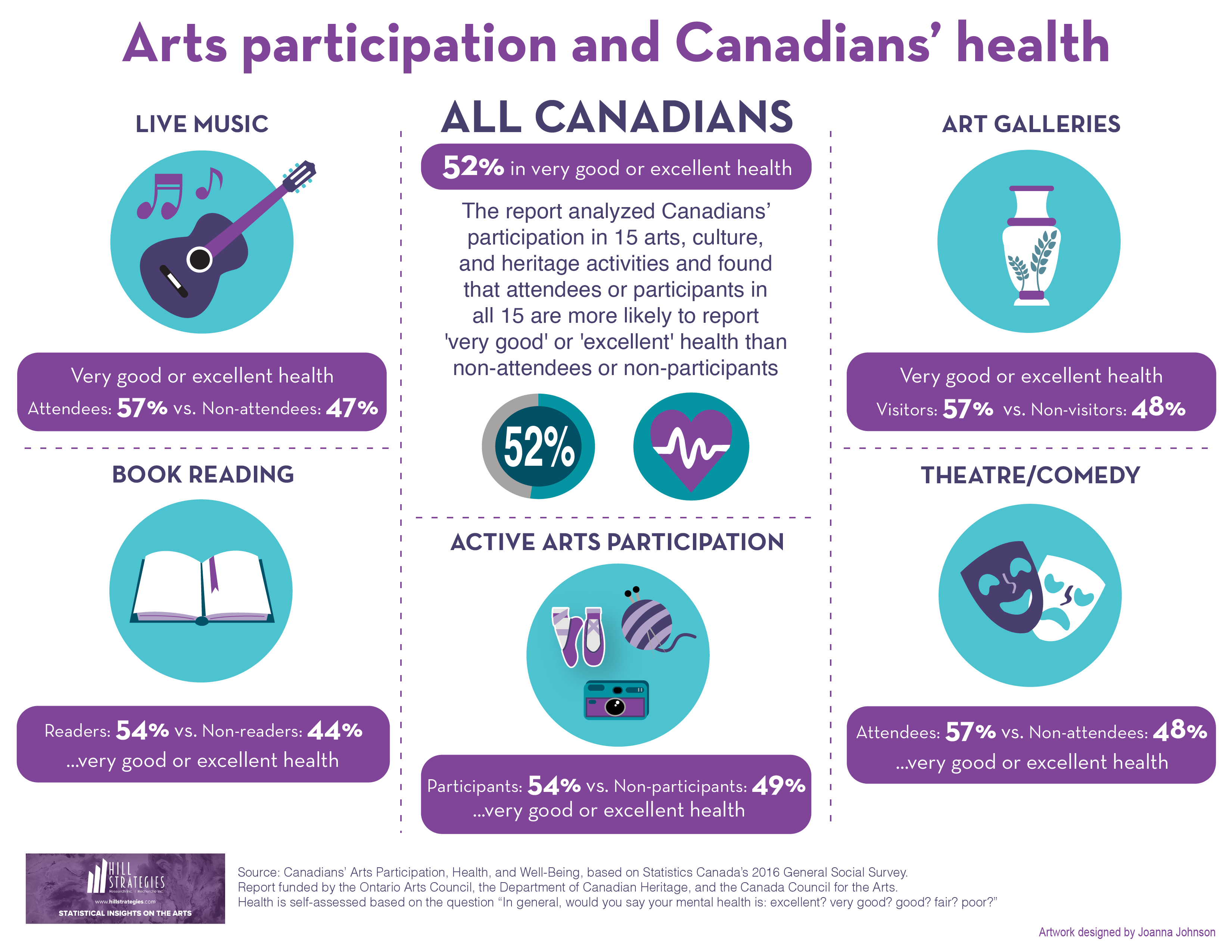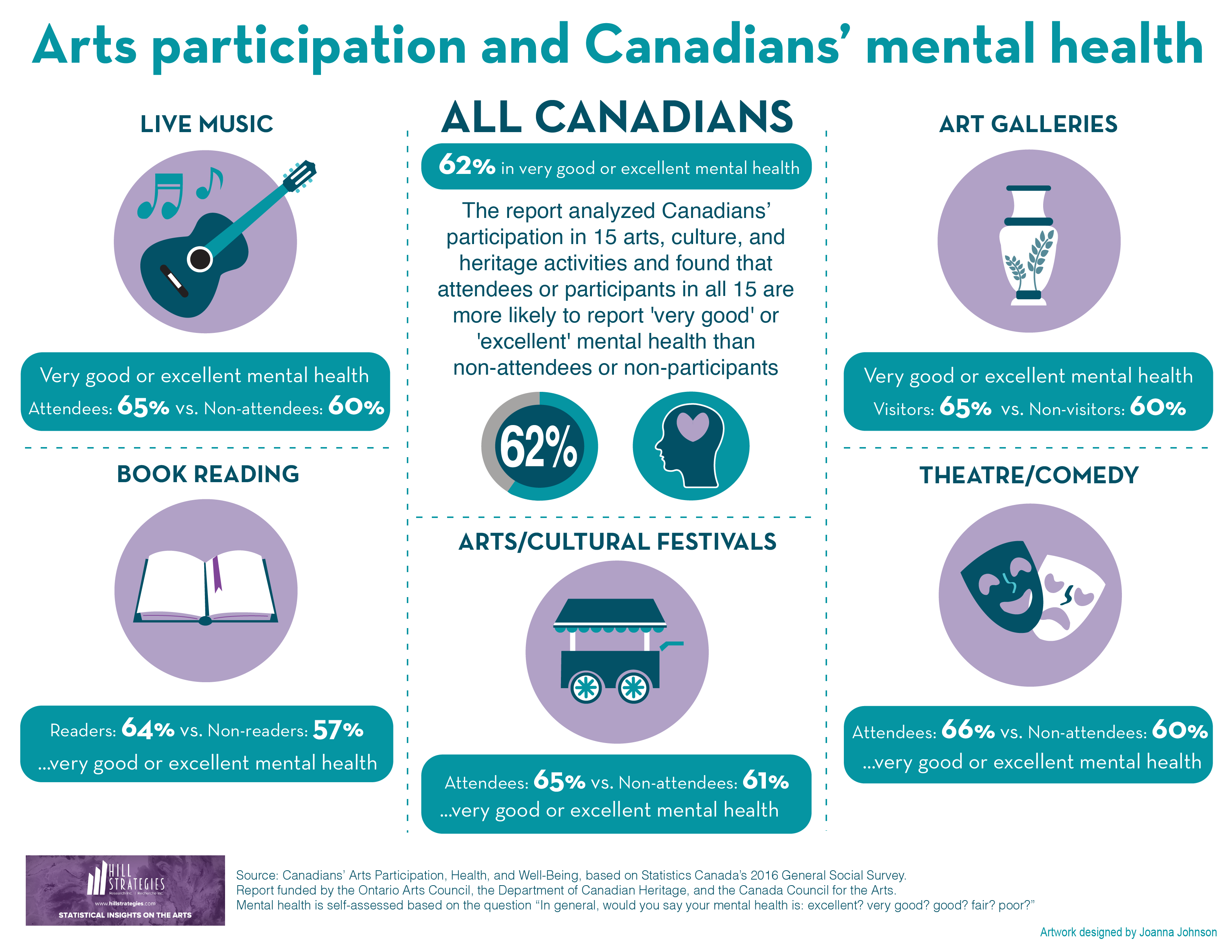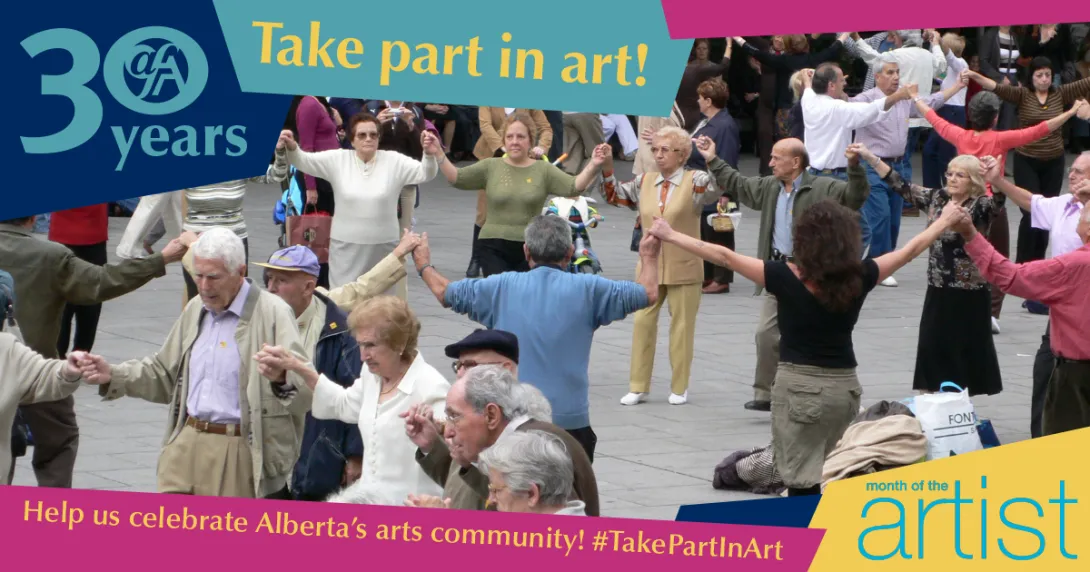The Relationship Between Arts Participation and Health
DATE :
As the AFA celebrates its 30th Anniversary and the annual Month of the Artist, we’re encouraging all Albertans to “take part in art.” A recent study by Hill Strategies Research Inc. provides insight on the positive health and mental health impacts of arts participation.
In February 2021, Hill Strategies Research Inc. released the report Canadians’ Arts Participation, Health, and Well-Being.
The report probes the relationships between 15 arts, culture, and heritage activities and four aspects of health and well-being:
- Overall health
- Mental health
- Satisfaction with life
- Satisfaction with feeling part of the community (i.e., sense of belonging)
The report shows important linkages between the arts and well-being, linkages that are particularly important within the current pandemic and eventual post-pandemic recovery.
Key Findings:
- There is a strong connection between cultural participation and health.
- There is solid evidence of a connection between cultural participation and mental health.
- There is a moderate connection between cultural participation and satisfaction with life.
- There is a limited connection between cultural participation and community belonging.
Strong Connection with Health
Arts and culture activities have a strong statistical connection with overall health. Attendees or participants in all 15 arts, culture, and heritage activities are more likely to report very good or excellent health than non-attendees or non-participants. For 14 of the 15 activities, the differences are statistically significant, including arts activities such as: active arts participation; live theatre or comedy attendance; classical and popular music attendance; cultural festival attendance; art gallery attendance; and book reading.

Solid Evidence of a Relationship with Mental Health
The analysis provides evidence of a connection between cultural activities and mental health. Attendees or participants in all 15 arts, culture, and heritage activities are more likely to report very good or excellent mental health than non-attendees or non-participants. For 12 of the 15 activities, the differences are statistically significant, including arts activities such as: live theatre or comedy attendance; classical and popular music attendance; cultural festival attendance; art gallery attendance; and book reading.

Moderate Connection with Overall Satisfaction with Life
Some of the evidence in the report shows a positive connection between cultural activities and satisfaction with life. However, the connection is not uniformly positive, depending on the measurement used for satisfaction with life.
The measurement with the strongest apparent connection with cultural participation is the satisfaction rating of 7 to 10. Attendees or participants in all 15 arts, culture, and heritage activities are more likely to rate their satisfaction with life as 7 to 10 than non-attendees or non-participants. For 13 of the 15 activities, the differences are statistically significant.
Limited Connection with Sense of Belonging
The report contains some positive evidence of a connection between cultural participation and Canadians’ sense of belonging to their communities, but the evidence differs depending on the measurement used for community belonging.
The measurement with the strongest apparent connection with cultural participation is the satisfaction rating of 7 to 10. Attendees or participants in 11 of the 15 arts, culture, and heritage activities are more likely to rate their satisfaction with feeling part of their community as 7 to 10 than non-attendees or non-participants. For four activities, the differences are statistically significant.
More information
Read the full report on Hill Strategies website.

